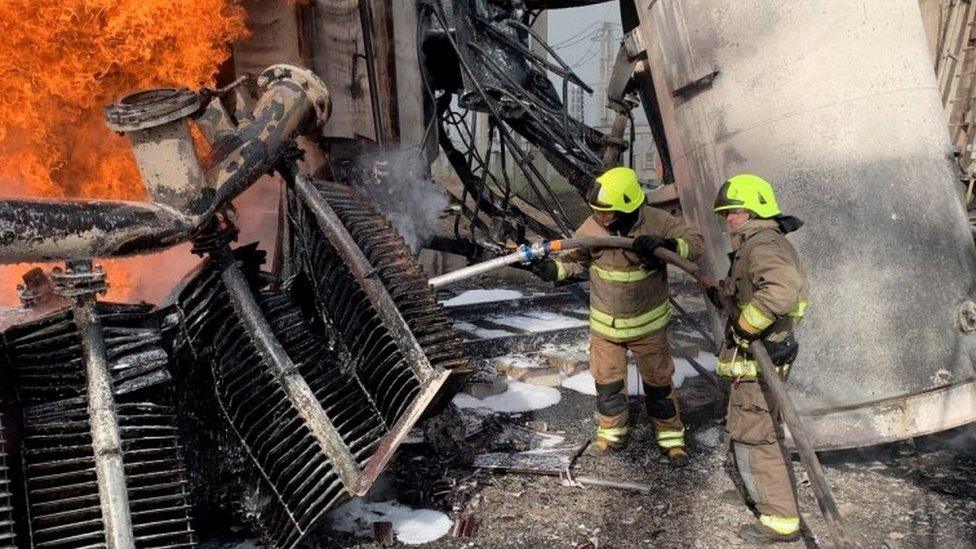Ukraine war round-up: Russian defence of Kherson and 'dirty bomb' row
- Published
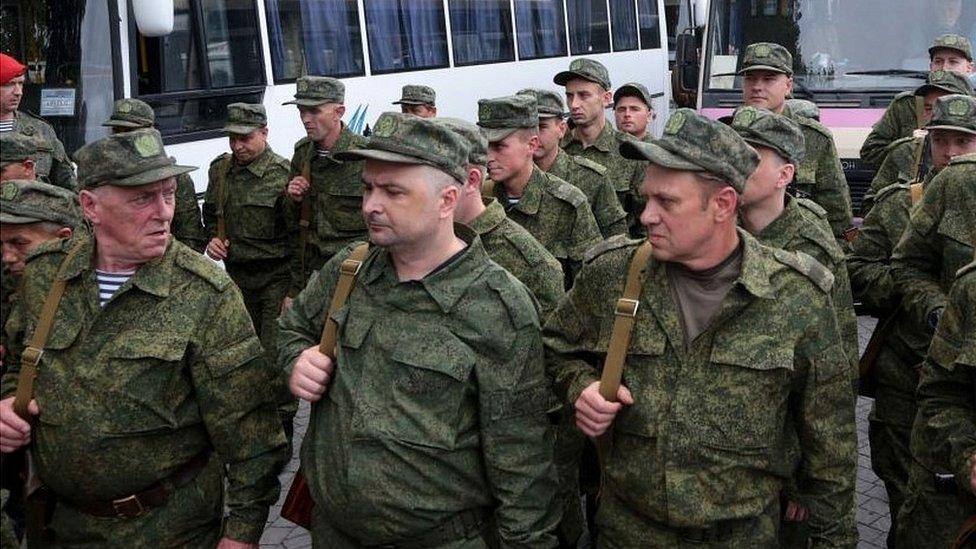
Russian reservists in Sevastopol, Crimea, 27 Sep 22
Ukraine said Russia was sending reinforcements into the strategic southern city of Kherson, as speculation mounted about possible plans for a "dirty bomb", which could spread radiation.
Kyrylo Budanov, the Ukrainian intelligence chief, said Russia was bringing more military units into the occupied city, and was preparing to defend it from a Ukrainian counter-offensive. He dismissed reports that Moscow was evacuating troops.
Russian authorities in the city have ordered thousands of civilians to evacuate, as Ukrainian forces press towards its outskirts on the west bank of the River Dnieper (Dnipro in Ukrainian).
The BBC has not verified the precise movements of either side's troops on the ground. The suggestion that Russian troops are digging in raises the possibility of a fierce fight in the coming weeks.
Kherson is the only regional capital to have been captured by Russia since it invaded on 24 February.

Russia's 'dirty bomb' claim dismissed
Nato rejected Russia's "false" claim that Kyiv might use a "dirty bomb" - conventional explosives laced with radioactive material.
"Russia must not use it as a pretext for escalation. We remain steadfast in our support for Ukraine," Nato chief Jens Stoltenberg tweeted.
He was echoing earlier condemnation of the claim by the foreign ministers of the US, UK and France, as well as by Kyiv.
In a flurry of calls to his Western counterparts on Sunday Russian Defence Minister Sergei Shoigu had said Moscow was "concerned about possible provocations by Kyiv involving the use of a dirty bomb".

Nuclear rhetoric tit-for-tat
Watch: SVR chief Sergei Naryshkin speaks to the BBC's Steve Rosenberg
Western leaders have expressed concern about the scale of nuclear sabre-rattling over Ukraine by senior Russian officials - but Moscow now accuses the West itself of such sabre-rattling.
Sergei Naryshkin, head of Russia's SVR Foreign Intelligence Service, spoke to the BBC's Steve Rosenberg and denied any Russian nuclear rhetoric, even though, our correspondent points out, there has been plenty.
When challenged on Moscow's rhetoric he said "we are, of course, very concerned about Western rhetoric about the possibility of using nuclear weapons".
Mr Naryshkin said political leaders must strive for "compromises" - but, our correspondent says, President Vladimir Putin shows no sign of preparing for compromise.

The cost of Russian occupation
Ukrainians have voiced fear that Russia may adopt a "scorched earth" policy in Kherson - leaving behind devastation if they are forced to abandon the city.
One of the threats, Kyiv says, is that Russia may blow up the nearby Kakhovka dam, which would flood a massive area.
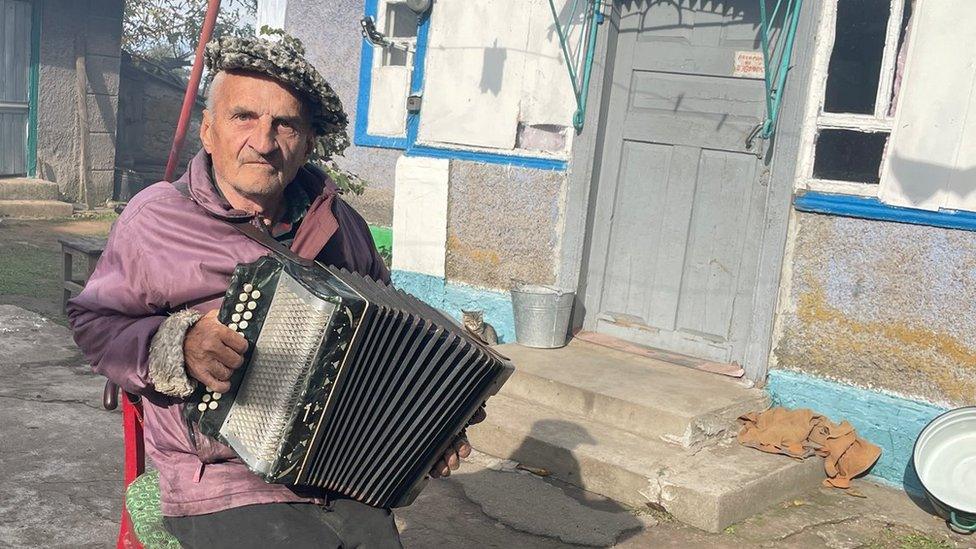
Fedir Derhun says he "nearly died from hunger" during Russian occupation
BBC Ukraine correspondent James Waterhouse found trauma and much destruction in villages north of Kherson which are now back in Ukrainian hands. Locals described much suffering, such as looting and hunger, during the Russian occupation.
"Those Russians said they were liberators, they just started robbing us!" says Fedir, 69, in tears. He says they took his car, furniture and mattresses. Nearly every house on his street has been damaged.

Russian TV hate speech scandal
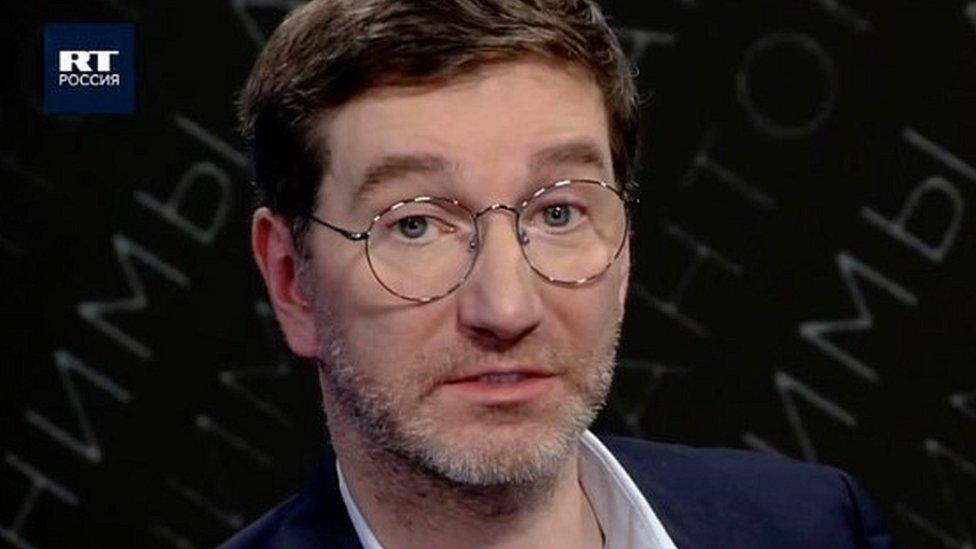
Russian state TV has given much airtime to pro-Kremlin propagandists, who often call for even harsher attacks on Ukraine. But one presenter was judged to have gone too far and has been suspended.
Anton Krasovsky, who has his own show on RT, called for the burning and drowning of Ukrainian children, during an interview with a science fiction writer. There was outrage over that on social media.
RT condemned his comments and suspended him - and he has apologised.

Ukrainecast
For more on life in Russian-occupied Kherson and newly liberated villages nearby listen to the latest edition of Ukrainecast. Victoria and Vitaly are joined by BBC Ukraine correspondent James Waterhouse.
You can listen to it here.
Related topics
- Published24 October 2022
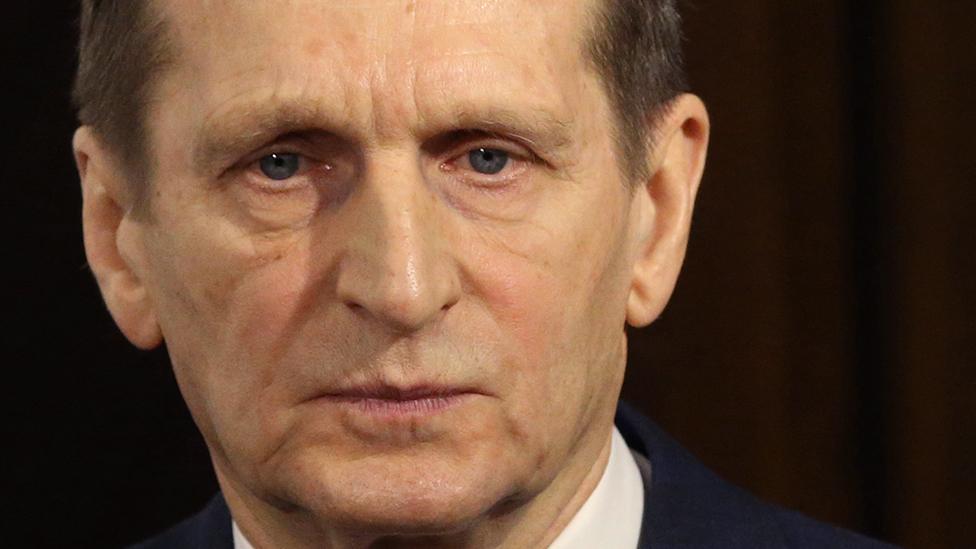
- Published23 October 2022
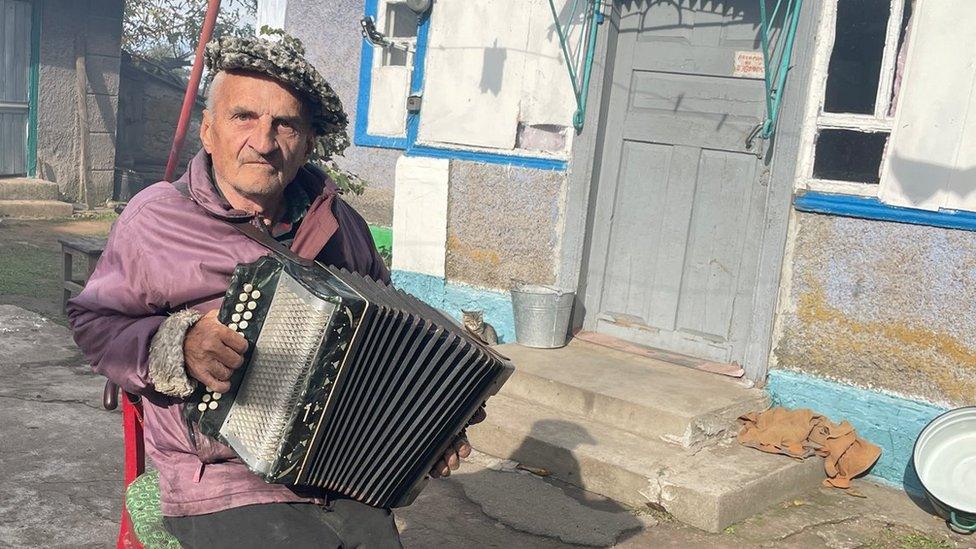
- Published24 October 2022
